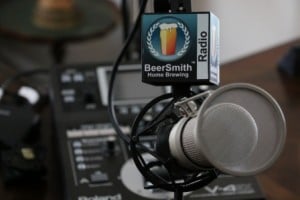 Dr Chris White, the President of White labs joins me this week to discuss an ongoing collaboration to unlock the genetic code of yeast. Chris has been working with scientists around the world to categorize various types of yeast and tie their genetic codes to yeast traits.
Dr Chris White, the President of White labs joins me this week to discuss an ongoing collaboration to unlock the genetic code of yeast. Chris has been working with scientists around the world to categorize various types of yeast and tie their genetic codes to yeast traits.
Subscribe on iTunes to Audio version or Video version or on Google Play
Download the MP3 File – Right Click and Save As to download this mp3 file
[audio:http://traffic.libsyn.com/beersmith/BSHB-131-White-Yeast.mp3]
Topics in This Week’s Episode (41:56)
- Today my guest is Dr Chris White the President of White Labs. Chris is the 2015 winner of the AHA Governing Committee award for lifetime achievement as well as author of the book Yeast (Amazon affiliate link) which is the bible on brewing yeast.
- We start with a discussion of how Chris got into unlocking the “genetic code” of brewing yeast?
- Chris explains how yeast was one of the first genomes fully decoded back in 1996.
- We talk about some of the advances in genetics including genetic testing for humans.
- Chris discusses a bit of the history of yeast which was only discovered recently when you consider the thousands of years of brewing history.
- Chris tells us of the main species of yeast used in brewing as well as the difference between a species and a strain.
- We talk briefly about Brett which was once a part of every beer before we started culturing single strains
- Chris explains the difference between top and bottom fermenting yeast
- Chris talks about the yeast groups they have found genetically and how they are different
- We discuss the goal of the research which is tying genes to specific traits of the yeast itself such as phenolics, maltose growth, alcohol tolerance, etc…
- Chris share some of his results with regards to yeast traits and genetics
- Chris explains how understanding yeast genetics might help us develop future yeast strains
- We briefly touch on genetically modified organisms (GMO) though no commercial yeasts are currently GMO
- He summarizes a few projects ongoing at white labs.
Sponsors
- Thank you to our sponsor Craft Beer and Brewing Magazine for sponsoring this episode. I encourage you to subscribe to their great magazine!
- And also Anvil Brewing Equipment. Anvil is a new line of kettles, burners and accessories from John Blichmann at Blichmann Engineering. They make top quality brewing equipment built to last a lifetime.
- Also check out BeerSmith, BeerSmith Mobile software and the new DVDs John Palmer and I filmed – How to Brew with Malt Extract and How to Brew All Grain are available now. You can subscribe to the BeerSmith newsletter for free to get some great articles on home brewing.
Thanks to Chris White for appearing on the show and also to you for listening!
iTunes Announcements: I launched a new video channel for the BeerSmith podcast on iTunes, so subscribe now! At the moment it will only feature the new widescreen episodes (#75 and up). Older episodes are available on my revamped Youtube channel. Also all of my audio episodes are on iTunes now – so grab the older episodes if you missed any.
Thoughts on the Podcast?
Leave me a comment below or visit our discussion forum to leave a comment in the podcast section there.
Subscribe to the Podcast on iTunes or BeerSmith Radio
You can listen to all of my podcast episodes streaming live around the clock on our BeerSmith Radio online radio station! You can also subscribe to the audio or video using the iTunes links below, or the feed address
- Audio feed on iTunes –
 (direct: http://beersmith.com/content/feed/podcast)
(direct: http://beersmith.com/content/feed/podcast) - Video feed on iTunes –
 (direct: http://beersmith.com/tv/category/podcast/feed/ )
(direct: http://beersmith.com/tv/category/podcast/feed/ ) - Audio podcast on Google Play here
And finally, don’t forget to subscribe to the blog and my newsletter (or use the links in the sidebar) – to get free weekly articles on home brewing.
Great informational interview! Thanks You!
Hi, just a quick note on something that drove me crazy in this interview (my PhD was in yeast genetics). Chris said that when faced with a new environment, yeast will mutate, which makes it sound like a response. The reality is, the DNA is mutating a little bit each time the cell replicates. Cells bearing advantageous mutations are selected for in the new environment, while ones with disadvantageous mutations are lost. It’s all random mutation and selection.
Pingback: História da Levedura - ou Como as Lagers dominaram o mundo